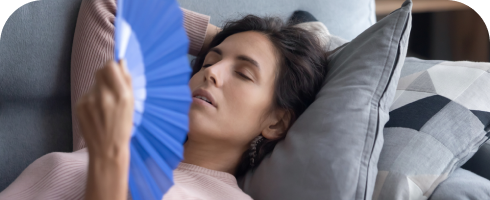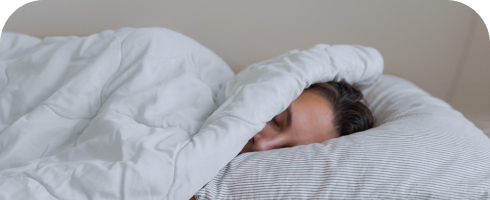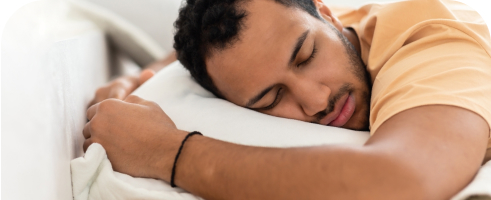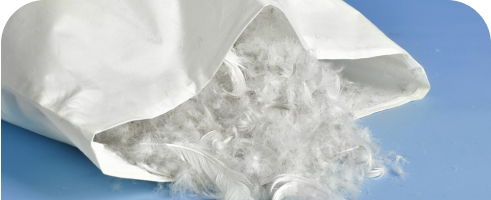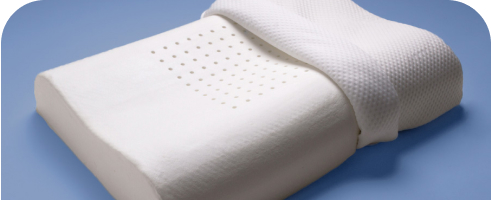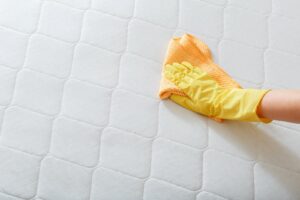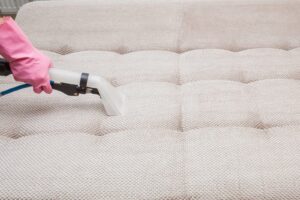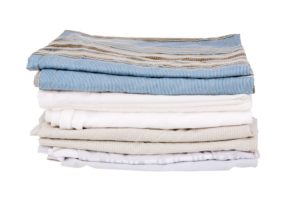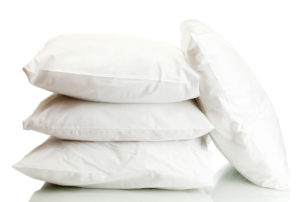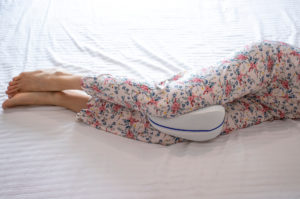Down vs. Feather Pillows
Pillow selection is among the most important decisions when curating a relaxing sleep space. The best pillow supports a good night’s sleep, adding comfort, improving spinal alignment, and allowing the muscles to more fully relax.
There is no “right” pillow for everyone. The ideal pillow varies by sleeper. One of the top categories sleepers consider when pillow shopping is fill, a term for the inner material of the pillow. Among fill options, down versus feather is a common debate.
We’ll take a deep dive into the differences between feather and down pillows to help you decide which is best for you. This includes exploring the components of the two pillow types, highlighting pillow performance, and weighing the pros and cons of down and feather.
Find a Pillow That’s Right for You
Looking for a new pillow? Take the quiz below to find the perfect pillow for your needs.
Trouble sleeping?
Answer these 5 easy questions to discover your perfect pillow

Trouble sleeping?
Answer these 5 easy questions to discover your perfect pillow
What position do you sleep in?

Side

Back

Stomach
What Is a Down Pillow?
A down pillow contains the soft inner layer of feathers of waterfowl, such as ducks and geese. The feathers naturally clump into fluffy, spherical clusters, which are stuffed into a thin fabric shell. Down pillows come in various sizes and firmness options.
Many sleepers prefer down pillows because of the material’s plushness and moldability. Despite being known for its warmth, the fluffy fill generally allows more heat-regulating airflow than foam-based products.
Down vs. Down Alternative
While down uses animal products, down alternative does not. Instead, down alternative contains cotton, polyester, or other synthetic materials designed to replicate the softness of down.
Down alternative does not typically provide the same level of insulation and warmth as natural down, but it is hypoallergenic. People who are allergic to down or those who avoid animal products may prefer a down alternative pillow.
Down Pillows
| Pros | Cons |
|---|---|
|
|
What Is a Feather Pillow?
A feather pillow contains the back and wing feathers of birds, such as ducks or geese. These feathers are flatter than down and have a distinct quill. A higher-quality shell should encase the fill to ensure the quills don’t poke out. Most feather pillows also contain some down for loft.
Many sleepers prefer feather pillows due to their durability and plushness. They also tend to be more affordable than down pillows.
Feather Pillows
| Pros | Cons |
|---|---|
|
|
Down vs. Feather Pillows
Down and feather pillows both tend to balance insulation and breathability for good temperature regulation. Additionally, they’re often more durable than other pillow varieties.
Down pillow fill uses the fluffy underbelly feathers of waterfowl, while feather pillow fill contains stiffer back and wing feathers. Because of their different fill materials, the two types of pillows vary in their moldability. A down pillow is more likely to contour to a sleeper’s neck and head, while a feather pillow may collapse. However, feather pillows are generally more affordable than down pillows.
| Down Pillows | Feather Pillowa | |
|---|---|---|
| Fill | Down pillows contain the fine inner layer of feathers found beneath the exterior feathers of waterfowl. The tiny, spherical clusters are soft and fluffy. | Feather pillows contain the back and wing feathers of waterfowl, including ducks and geese. These feathers are soft around the edges but have a prickly quill down the center. |
| Loft | Down pillows are traditionally fluffy and lightweight. A higher fill power increases the loft. While down pillows may go flat over time, fluffing quickly restores their loft. | Like down pillows, a feather pillow’s loft depends on its fill power. Feather pillows are more likely to flatten over time than down pillows, requiring more frequent fluffing. |
| Firmness | Although the fill is inherently soft, down pillows are available in several firmness levels due to variations in fill power. Typically, down pillows are softer than feather pillows. | Feather pillows are available in various firmness levels, including soft, medium, and firm. However, feather pillows tend to feel a bit firmer than similarly rated down pillows due to the presence of quills. |
| Price | The cost of down pillows depends on the quality and the rarity of the fill. Goose down tends to be higher in price than duck down. Down pillows average around $80 to $200. | Feather pillows are typically not as expensive as down pillows, starting at around $25. Most models contain some down. You can expect those with a higher percentage of down to cost more. |
| Temperature Regulation | Down pillows provide warmth and insulation for cold sleepers. However, down is generally more breathable than pillows that contain memory foam or polyfoam. | Feather pillows retain some warmth but are less insulating than down. The feather fill leaves more room for airflow, helping the pillow maintain a cooler temperature. |
| Moldability | A down pillow molds to a sleeper’s head and neck, adjusting to different shapes and weights. | Despite contouring to a sleeper’s head, feather pillows are more inclined to go flat. |
Which Should You Choose?
Depending on your preferences, either a down or a feather pillow could be a better choice. Feather and down pillows are similar in several ways, including durability, insulation, and softness. However, they have subtle differences that may be preferable to some sleepers and undesirable to others.
While both pillows can be plush and comfortable, down pillows typically hold their shape better than feather pillows. Sleepers who move around throughout the night often favor down pillows because they mold to their movements. Side sleepers may prefer feather pillows because they can easily fold to fit under the neck. You should fluff either type of pillow regularly, but feather pillows may need extra attention to maintain their loft.
Although thick shells encase most feather pillows, quills could still poke through and cause discomfort. Down does not contain pointed quills, so down pillows do not present this potential issue.
Cost is an important factor for nearly every sleeper. Value seekers may prefer feather pillows, as the price tends to be more budget-friendly. Luxury enthusiasts might favor down pillows for their plusher qualities. Some pillows contain both feathers and down, which can potentially save buyers money while still letting them receive the benefits of down.
You May Prefer Down Pillows If…
- You tend to sleep cold
- You’re in the market for a durable pillow with a longer-than-average lifespan
- You prefer a fluffy pillow
You May Prefer Feather Pillows If…
- You sleep on your side
- You want a more affordable option
- You tend to sleep hot

Still have questions? Ask our community!
Join our Sleep Care Community — a trusted hub of sleep health professionals, product specialists, and people just like you. Whether you need expert sleep advice for your insomnia or you’re searching for the perfect mattress, we’ve got you covered. Get personalized guidance from the experts who know sleep best.

